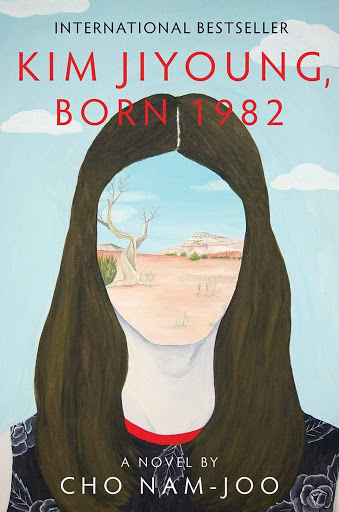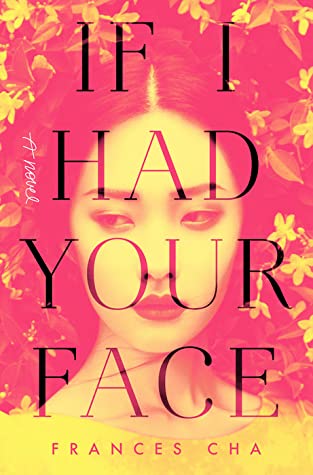Kim Jiyoung, Born 1982 & If I Had Your Face
Reviewed by Kristy Dolson.
After a roller-coaster 2020, I made the bittersweet decision to return to Canada early next year. And so, it is with a heavy heart that I announce this to be my final book review for the Gwangju News. It has been an honor to serve the community, and I wish to leave you with a special parting gift: a double feature review of two contemporary South Korean authors whose books disrobe Korean patriarchy and misogyny with blunt portrayals of female hardships.
The first book is Kim Jiyeong, Born 1982 by Cho Nam-Joo. Protagonist Kim Jiyoung is a stand-in for the thousands of Korean women who were the first daughters in their families to obtain post-secondary degrees, join the workforce, and then reluctantly drop out to maintain marriages and perform traditional childcare duties as mandated by an unchanging patriarchal work culture. This short novel explores how fierce competition and workplace pressures buffet the Seoul woman’s psyche.

After waiting years to read this book, I finished it in a mere two days. Surprisingly short for such an explosive and controversial work, the narrative is straightforward but challenges the reader to ask questions about cultural norms and long-held assumptions about gender roles. Personally, I found the novel very instructive of the current state of feminism in South Korea. I was very curious about how Korean women of my generation deal with traditional expectations in the post-Me Too era. I found that it is very much the same in other progressive countries where women born in the 1980s have been raised on pop culture “Girl Power” and Women’s Lib politics only to discover a work culture that begrudges their admission and expects them to continue playing by the old, male-dominated rules. It is no wonder that Kim Jiyoung suffers from a mental breakdown when the book opens.
Although Cho’s novel is a work of fiction, there are facts and figures pulled from real-world sources documenting Korea’s ongoing gender inequality. As a result, sometimes the book reads like a novel and sometimes it reads like a report, with most chapters containing endnotes listing the author’s research documents. Readers should know that the narrative is less of a story and more of a collection of vignettes of injustice that make up the shape of an individual woman. Recently translated into English by Jamie Chang, it is clear that this was translated for people who are already somewhat acquainted with South Korean language and culture. For outsiders with a basic understanding of South Korean culture, it is a good introduction to urban middle-class expectations, especially the gap in expectations between males and females. The ending is open to interpretation, perhaps as a nod to the next generations of women choosing self-fulfillment over marriage, and careers over children.
The second book, If I Had Your Face by Frances Cha, offers a depiction of these new attitudes and choices. The four women of this novel, Ara, Kyuri, Miho, and Wonna, all live in the same Seoul officetel. But they lead very different lives. Ara is a mute hairdresser, and she lives with her childhood best friend Sujin. Idolizing their beautiful neighbor Kyuri – a successful room salon girl – Sujin longs to become beautiful herself by undergoing plastic surgery. Sujin and Miho were raised in the same orphanage, although Miho was lucky to be born with natural beauty. Kyuri’s roommate, Miho, was granted a scholarship to study art in New York. While in America, she got swept into the world of rich young Koreans and started dating Hanbin, the son of a chaebol family whom she has no intention of marrying. Observing the younger women from a distance is Wonna, a woman in her mid-thirties who is married to a hopeless optimist while she herself struggles against the lingering trauma of her childhood and a string of recent miscarriages.

Most of the feminist Korean fiction I have read has had a surreal quality to it, so the straightforward honesty of this book was a welcome surprise, making it a brisk and gripping read. Even though I have lived and worked in Korea for over eight years, I still found this novel educational and shocking. Depression and powerlessness shadow this story, as the characters struggle against crushing expectations. I am so happy to live in Jeollanam-do, far from that madness. Despite the overwhelming sense that life in Seoul is cruel, harsh, and unforgiving, these women refuse to give up their hopes and dreams. And in the end, some characters do receive a hopeful turn of events placing them on a better path forward.
Published in April of this year and written in the first-person from the perspectives of four women with diverse backgrounds, this is a contemporary and intense examination of South Korean urban culture and working-class attitudes. The pacing is great, with necessary exposition dispersed evenly between scenes and dialogue. The dialogue sounds authentic and Cha, a Korean American and former editor for CNN, uses Korean words with the expectation that readers are already familiar with them. It is well organized and competently written for international audiences, uncovering the gritty underworld of South Korea’s working-class women and the obsessive drive for perfection and beauty.
So, while I am leaving South Korea soon, this fascinating country and its people will always be a big part of my life. Books and short stories by Korean authors will always have a spot on my to-read list with the hope that Korea – and the world – will continue moving forward towards the betterment of all humanity. And as I set out in search of my own future, I would like to say a sincere thank you to Gwangju and the Gwangju News. I will certainly never forget my time serving in the City of Light.
The Reviewer
Kristy Dolson lived in South Korea for five years before taking a year off to travel, read, and spend time with her family in Canada and Australia. She holds a Bachelor of Education and returned to Gwangju where she has spent an additional three years teaching at the new Jeollanamdo International Education Institute, but she will soon be moving back to Canada in hopes of one day opening her own bookshop and community space.
Special Note: The Gwangju News wishes to extend our heartfelt gratitude to Kristy Dolson for providing us with monthly book reviews over the past three years that have been garnished with a dash of social responsibility and a pinch of introspection. Best wishes, Kristy, as you set out on your new adventure. — Eds.







